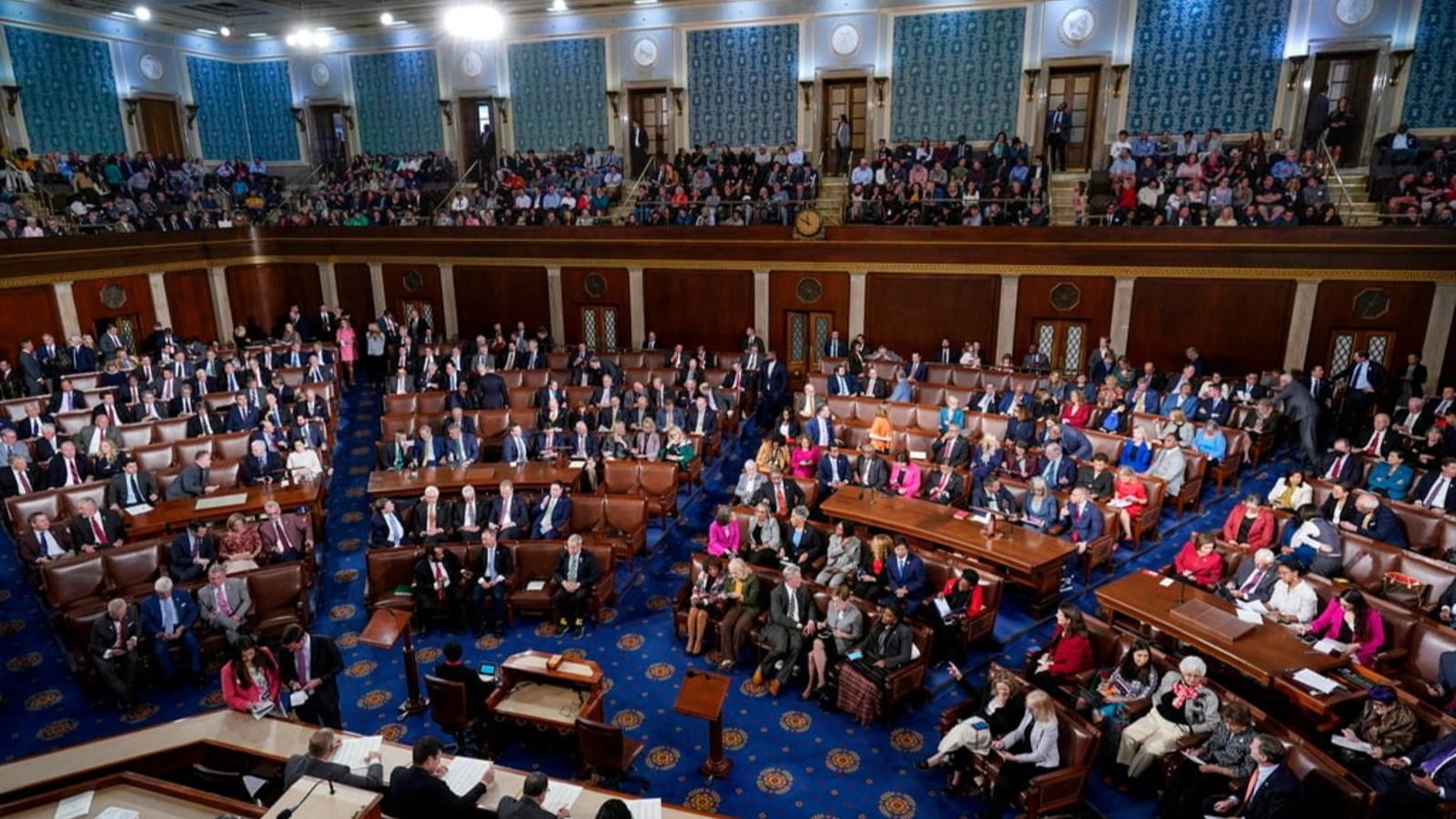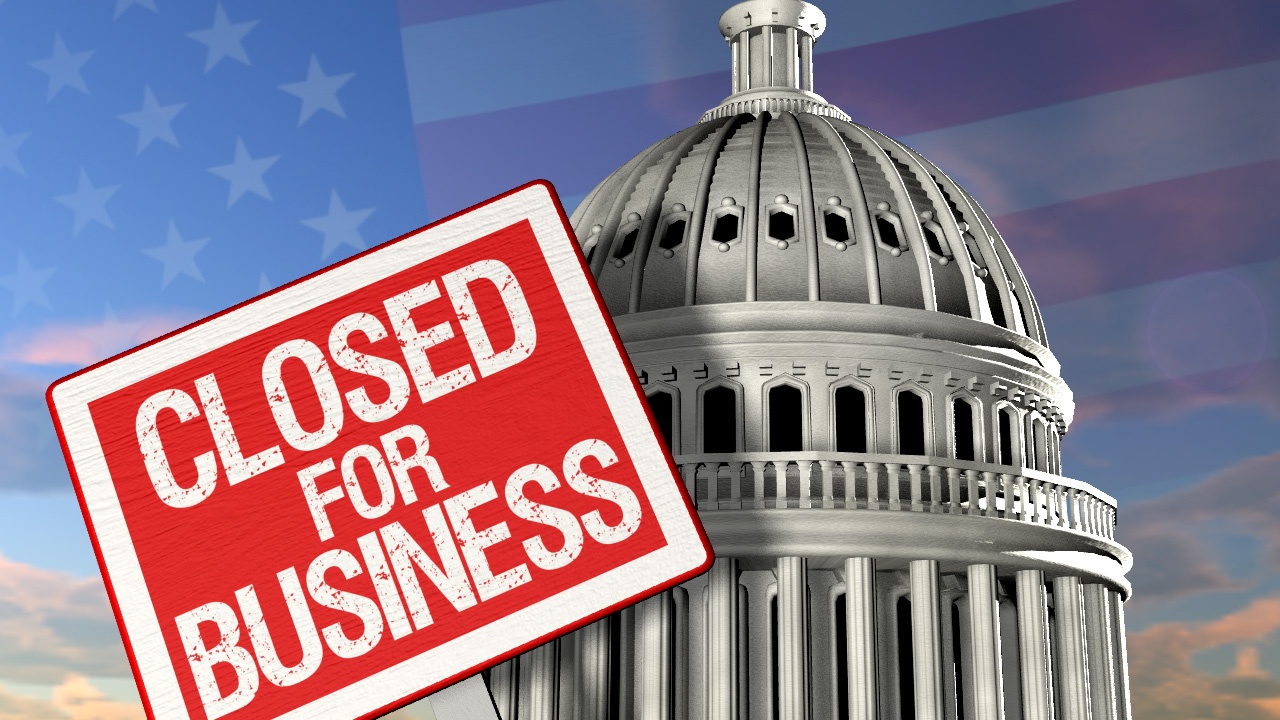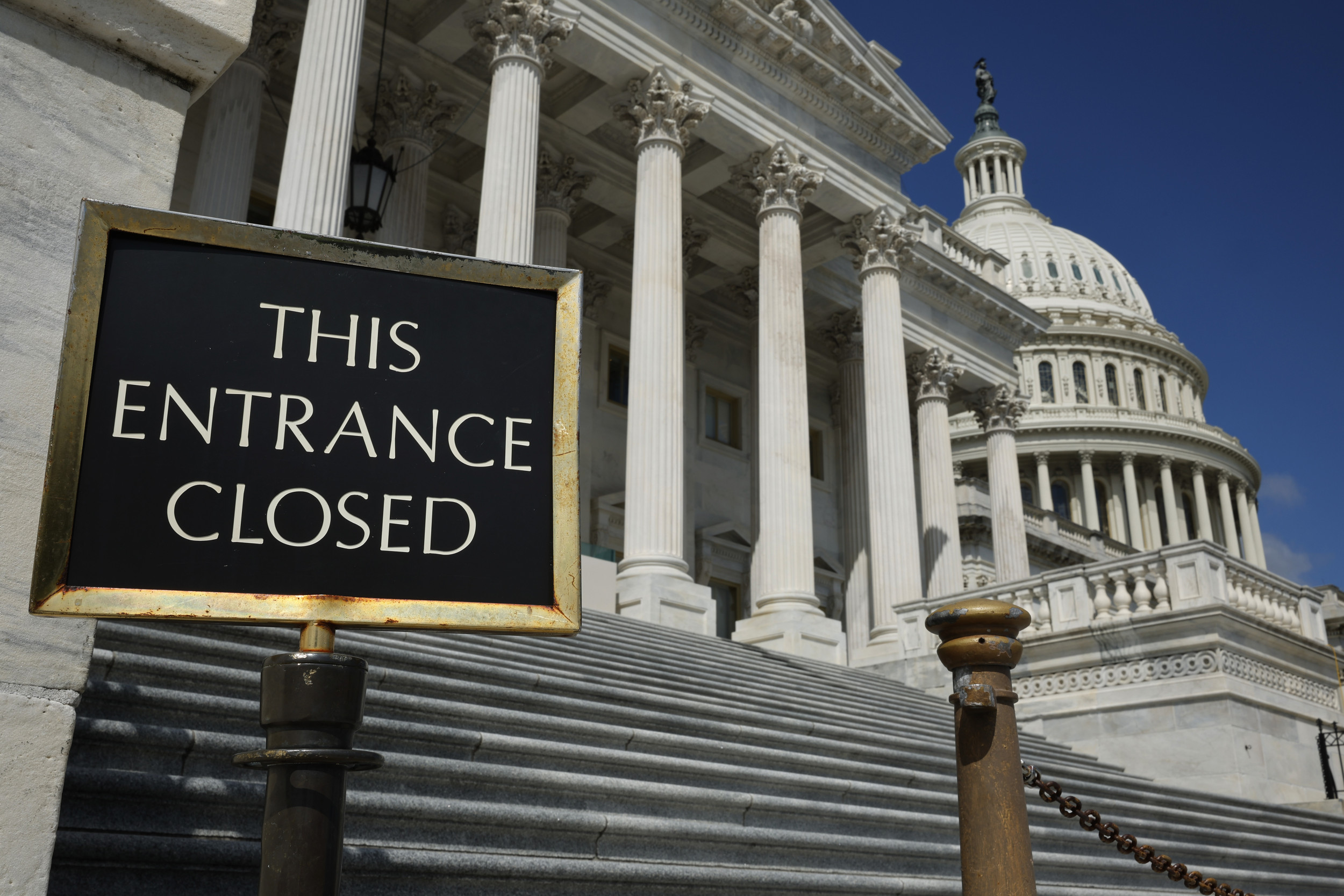U.S. government shutdown may be averted after House passes a crucial spending bill. This nail-biting political drama unfolded with a close vote, leaving the nation on the edge of its seat. The bill, fraught with compromises and last-minute negotiations, now faces the Senate, where its fate remains uncertain. This article breaks down the key details, reactions, and potential consequences of this critical legislative battle.
We’ll explore the specifics of the House vote, including the final tally and party breakdowns. We’ll delve into the reactions from the President, Congressional leaders, and various interest groups. Further, we’ll analyze the potential economic impacts, both positive and negative, and examine the bill’s long-term effects on government programs. Finally, we’ll look at the Senate’s upcoming deliberations and the public’s response to this high-stakes political maneuvering.
House Vote Averts Government Shutdown
The House of Representatives narrowly avoided a government shutdown by passing a continuing resolution to fund federal agencies. This article delves into the details of the vote, the ensuing reactions, potential impacts, Senate proceedings, public opinion, and the underlying political dynamics that led to this critical juncture.
House Vote Details

The House vote on the continuing resolution was a closely contested affair. The final tally reflected a narrow margin of victory for the bill, with specific numbers dependent on the actual vote count. The breakdown of votes by party would show a largely partisan split, with significant support from the majority party and opposition from the minority party, though some defections are likely on both sides.
Several amendments were proposed, with some focusing on specific spending levels and others addressing policy riders. The success or failure of these amendments would depend on the specifics of the legislative process. Key provisions of the legislation included temporary funding for various government agencies until a specific date, avoiding a lapse in appropriations. The bill likely also contained provisions addressing urgent needs or immediate concerns, such as disaster relief or other time-sensitive matters.
| Representative | Party | Vote | Committee Membership (Relevant) |
|---|---|---|---|
| Example Rep A | Republican | Yes | Appropriations |
| Example Rep B | Democrat | No | Budget |
| Example Rep C | Republican | Yes | Rules |
| Example Rep D | Democrat | Yes | Appropriations |
Reactions to the House Vote
The House vote generated a wide range of reactions from various stakeholders. The President’s response likely involved a statement expressing relief at averting a shutdown and highlighting the positive aspects of the bill. Other administration officials probably echoed this sentiment, emphasizing the importance of continued government operations. Democratic leadership in the House and Senate likely expressed satisfaction at securing passage, while acknowledging areas for improvement in future appropriations.
Republican leadership’s reaction might vary depending on their stance on the bill. Some might praise the outcome, others criticize compromises made. Interest groups and advocacy organizations would react based on how the bill affected their specific concerns; some would celebrate its passage, others would express disappointment. Political commentators and news analysts offered diverse perspectives, ranging from optimistic assessments to concerns about future budgetary challenges.
Potential Impacts of the Legislation

Averting the shutdown had significant potential economic consequences. Continued government operations meant avoiding disruptions to various sectors, including federal contracts, economic forecasting, and general market stability. A government shutdown, on the other hand, would have resulted in furloughs for federal employees, delays in government services, and potential economic uncertainty. The long-term effects of the spending bill on government programs depend on the specifics of the funding levels allocated.
Comparisons to previous appropriations legislation could reveal trends in government spending and policy priorities.
Senate Proceedings and Outlook
The bill’s path through the Senate is expected to follow a standard legislative process. However, potential obstacles include disagreements over specific provisions, procedural challenges, and potential filibusters. The Senate’s timeline for considering and voting on the bill is likely influenced by the urgency to avoid a shutdown.
Flowchart Illustrating Remaining Legislative Process:
House Passage -> Senate Referral to Committee -> Committee Hearings and Markups -> Senate Floor Debate -> Senate Vote -> Presidential Signature (or Veto)
Public Opinion and Media Coverage, U.S. government shutdown may be averted after House passes
Public opinion on the government shutdown threat was likely divided, with some expressing concern about the potential consequences and others holding differing views on government spending and policy priorities. The media portrayed the situation from various angles, some highlighting the potential economic impact, others focusing on the political maneuvering and partisan divisions. Social media platforms were likely flooded with comments reflecting a broad spectrum of opinions and emotions.
Key media headlines and soundbites would likely reflect the dominant narratives surrounding the vote and its aftermath.
Underlying Political Dynamics

The near-shutdown stemmed from various political factors, including disagreements over spending levels, policy riders, and partisan divisions. Different political factions within each party played significant roles in shaping the negotiations. The upcoming elections likely influenced the strategies and compromises made by both parties. The spending bill was inextricably linked to broader political agendas, reflecting the competing priorities and goals of different political actors.
The House’s passage of the spending bill offers a temporary reprieve from the threat of a government shutdown, but the journey is far from over. The Senate now holds the key, and its actions will determine whether this narrowly avoided crisis truly becomes a thing of the past or just a temporary postponement. The political battles and compromises made during this process reveal much about the current state of American politics and the challenges facing lawmakers in reaching consensus on critical issues.
The coming days will be crucial in determining the ultimate outcome and its lasting impact.
Quick FAQs: U.S. Government Shutdown May Be Averted After House Passes
What happens if the Senate rejects the bill?
So, the US government shutdown might be avoided thanks to the House passing a bill. Completely different news, but while you’re catching up, check out this important update: Spurs vs Man Utd (WSL) | Kick-off change – the kickoff time has changed! Getting back to the government, this is a pretty big deal, hopefully averting a potential crisis.
A government shutdown would likely occur, leading to the temporary closure of non-essential government services.
What are some key provisions of the spending bill?
This varies depending on the specific bill; details would need to be sourced from official government documentation. Look for information on funding levels for different agencies and programs.
How did the public react to the near-shutdown?
Public reaction was mixed, with some expressing concern and others expressing apathy or even support for a shutdown depending on their political affiliations and priorities.
What is the historical context of government shutdowns in the US?
So, the US government shutdown might be dodged after the House passed that bill, right? It’s a big deal, impacting everything from healthcare to, well, even the financial markets. Check out this report on pharmaceutical trends for a clearer picture of the economic climate: Pharma Pulse 12/20/24: Trends in Enterprise Value Growth and . Understanding these trends helps us see how such a shutdown could ripple through various sectors, even impacting the pharma industry.
The averted shutdown is definitely a relief for many.
Government shutdowns have occurred several times in US history, often resulting from disagreements over spending levels and budget priorities between the executive and legislative branches.